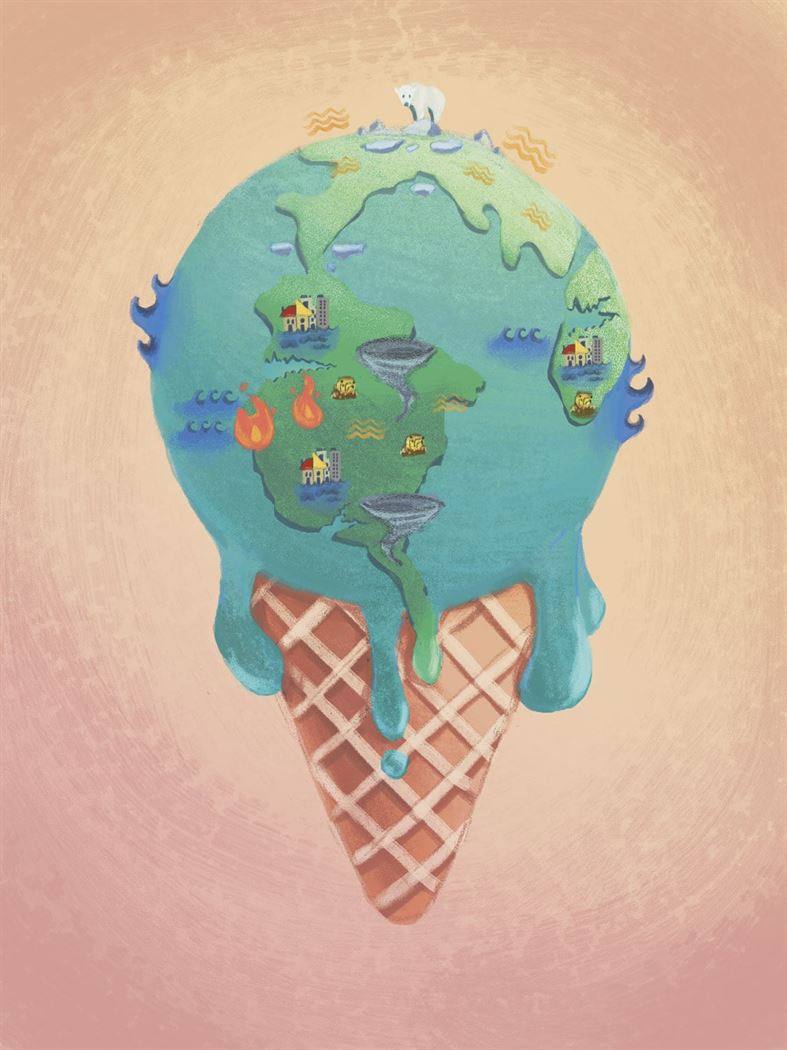A quick look at the news will show that the world is purging. There are wildfires breaking out all over the globe, three-digit heat waves in parts of Europe and Africa, hurricanes bombarding the southeast coast of the United States and earthquakes bringing down buildings and lives around people in Mexico and Japan. As separate events, we can believe that these are just results of dry spells or geological plates butting heads, but we are beyond that. Earth is demonstrating signs of climate decay and they are manifesting in the worst ways possible. Thousands of people are being displaced and thousands more will be if we do not start acting.
We, students at Montclair, owe it to ourselves and our communities to try and understand what is happening on our planet, especially when they affect us the way climate change does. So, we can share this knowledge with others, who in turn share it with other people. This makes it second nature to care about Earth. It goes beyond just recycling or taking public transportation. It is beyond just talking about things like the melting ice caps. Those are very important as they raise sea level and may in the future force cities underwater or cause rivers and streams to flood. However, that is just knowing about it, and we need to do more than just know, we need to understand. We need to grasp that another side effect of climate change is that parasites thrive. Some of them kill bees, which lowers crop yielding because there are no insects to pollinate fields, which raises prices and limits the amount of certain produce.
It challenges the barriers we put up in our minds. The things we tell ourselves to justify not understanding or going out of our way to understand. It forces us to understand that this has been an issue, a very real issue for decades. It has not just popped up, it is not leftist agenda. We can potentially promote growth, especially our generation with its connection to technology and the power we have over everything. New innovations geared towards dealing with climate change, such machines that make up for the decline in bees, or new ways to preserve their numbers so that half the U.S. population does not have to starve in 50 years.
Educating ourselves is a promise to the future. It is promoting technical knowledge and encouraging future scientists and politicians to take these issues to heart. It is looking at our future and knowing that we do not want to see our children starving for basic needs. There are countries who are already suffering the way scientists predict we might if we allow ourselves to be ignorant to this issue. We know about countries burdened with long lines for food or people being rationed food because there just is not enough. We know about people who are unable to live comfortably because of ridiculously high-priced living. We, the future generation, could help these people and prevent ourselves from falling into the same strife. All it would take would be for us to understand, not just know, and discuss climate change when the change arises.



